Home>Articles>How Do You Remove Water Stains From Granite Countertops
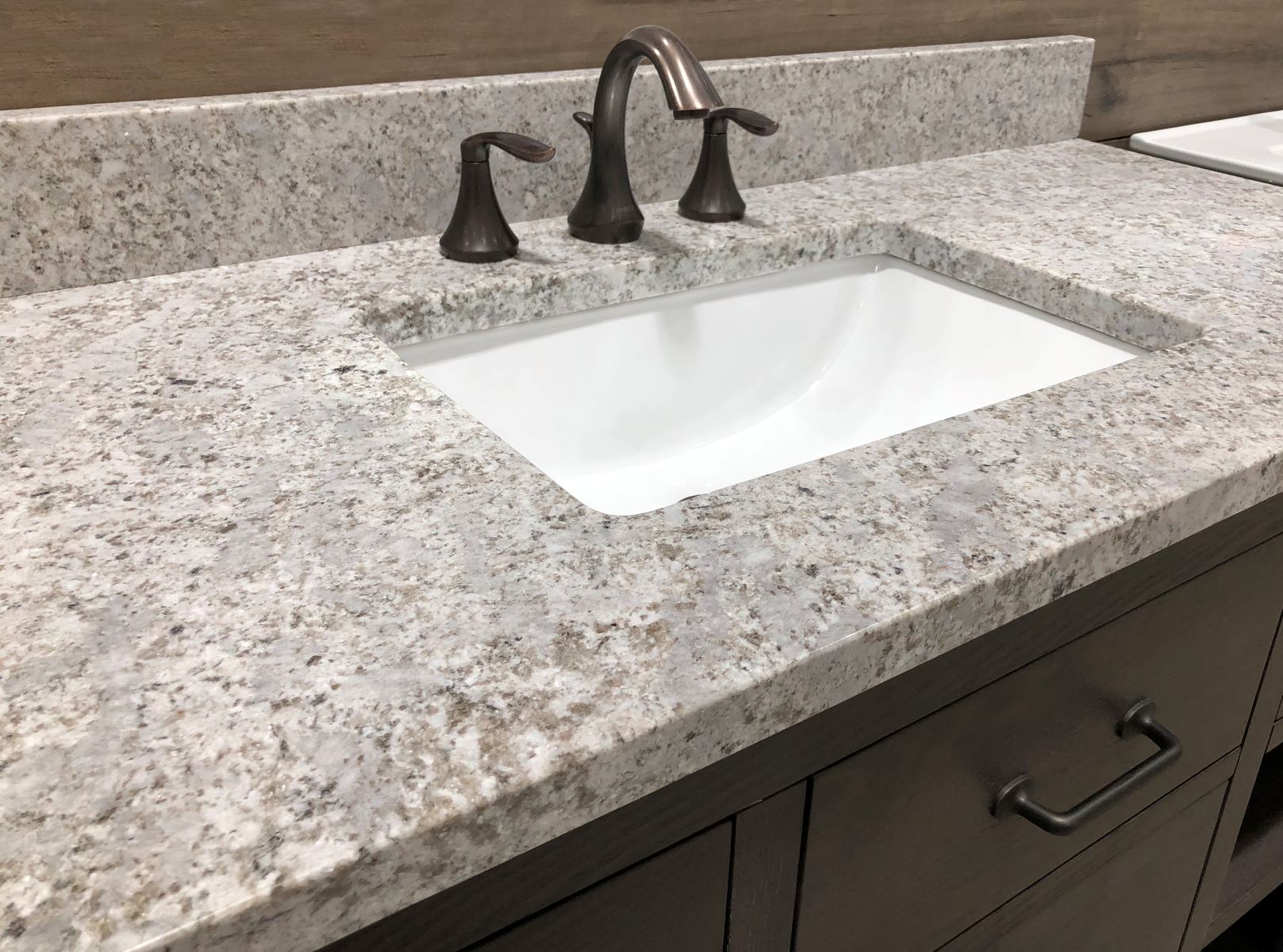

Articles
How Do You Remove Water Stains From Granite Countertops
Modified: February 23, 2024
Looking for articles on how to remove water stains from granite countertops? Find expert tips and tricks to restore the beauty of your surfaces.
(Many of the links in this article redirect to a specific reviewed product. Your purchase of these products through affiliate links helps to generate commission for Storables.com, at no extra cost. Learn more)
Introduction
Granite countertops are a popular choice for homeowners due to their durability, beauty, and resistance to scratches and heat. However, one issue that can arise with granite countertops is the formation of water stains. Water stains can occur due to spills, hard water deposits, or prolonged exposure to moisture. These stains can be unsightly and detract from the overall appearance of your granite countertops.
If you’re dealing with water stains on your granite countertops, don’t worry – there are effective ways to remove them and restore the natural shine of your surfaces. In this article, we will guide you through the process of removing water stains from granite countertops, ensuring that your kitchen or bathroom surfaces remain clean and pristine.
Before we delve into the solution, it’s important to understand why water stains occur on granite countertops. Granite is a natural stone composed primarily of quartz, feldspar, and mica. Although granite is relatively resistant to moisture, certain substances present in water, such as minerals and impurities, can leave behind deposits on the surface of the granite when it dries.
Key Takeaways:
- Say goodbye to water stains on your granite countertops by using gentle cleaning solutions like mild dish soap, baking soda paste, and hydrogen peroxide to restore the natural shine of your surfaces.
- Prevent future water stains by wiping up spills promptly, using coasters and trivets, avoiding acidic substances, and applying a high-quality granite sealer to protect your countertops.
Understanding water stains on granite countertops
Water stains on granite countertops can vary in severity and appearance. Some may be light and barely visible, while others can be darker and more pronounced. The key to effectively removing water stains is to understand their composition and the underlying cause.
Water stains on granite countertops are typically caused by minerals and impurities in the water that settle on the surface of the stone when it dries. These minerals can include calcium, magnesium, and iron, among others. Over time, these deposits can build up and create a cloudy or hazy appearance on the granite surface.
Another type of water stain that can occur on granite countertops is called etching. Etching is the physical alteration of the granite surface caused by acidic substances coming into contact with the stone. Common culprits for etching include citrus fruits, vinegar, and certain cleaning products.
It’s important to note that water stains are different from water spots. Water spots are simply residual water droplets that dry on the surface and can easily be wiped away. Water stains, on the other hand, are more stubborn and require a different approach to removal.
When dealing with water stains on granite countertops, it’s essential to assess the severity of the stain. Light water stains are usually more superficial and can often be removed with basic cleaning methods. However, deeper or older water stains may require more intensive cleaning techniques.
Now that we have a better understanding of what water stains are and how they form on granite countertops, we can move on to the next step: assessing the severity of the stains.
Assessing the severity of water stains
Before you begin the process of removing water stains from your granite countertops, it’s important to assess the severity of the stains. This will help determine the appropriate cleaning method and products to use. Here are some steps to follow when assessing the severity of water stains:
- Observe the appearance: Take a close look at the water stains on your granite countertops. Are they light or dark? Are they concentrated in specific areas or spread out across the surface?
- Feel the texture: Gently run your fingers over the water stains. Are they smooth or rough? Is there any etching or surface damage?
- Perform a water test: Sprinkle a few drops of water on the stained areas and observe how the water reacts. Does it bead up or absorb into the granite?
Based on these observations, you can determine the severity of the water stains:
- Light stains: If the stains are light, superficial, and easily wiped away with a damp cloth, they can usually be removed using mild cleaning methods.
- Deep stains: If the stains are dark and penetrate the surface of the granite, they may require more intensive cleaning or polishing to remove.
- Etching: If you notice etching or surface damage caused by acidic substances, additional steps may be needed to repair and restore the affected areas.
By assessing the severity of the water stains, you can customize your approach to effectively remove them from your granite countertops. In the next section, we will explore the cleaning solutions and tools you’ll need for the task.
Cleaning solutions and tools needed
When it comes to removing water stains from granite countertops, using the right cleaning solutions and tools is crucial. Using improper or abrasive cleaners can damage the surface of the granite and worsen the stains. Here are some recommended cleaning solutions and tools for tackling water stains:
- Warm water and mild dish soap: For light water stains, start by using a solution of warm water and a few drops of mild dish soap. This gentle mixture is suitable for regular cleaning and can help lift light stains from the granite surface.
- Baking soda: Baking soda is a natural and effective cleaner for tackling tough water stains on granite. Create a paste by mixing baking soda with a small amount of water and apply it to the stained areas. Allow it to sit for a few minutes before gently scrubbing with a soft brush or sponge. Rinse thoroughly with water afterward.
- Hydrogen peroxide: Hydrogen peroxide is another useful solution for removing deep or stubborn water stains. Dilute hydrogen peroxide with water in a 1:1 ratio and apply it to the stains. Allow it to sit for a few minutes before wiping it clean with a damp cloth.
- Stone cleaner: If you prefer to use a specialized granite cleaner, look for one that is specifically formulated for use on natural stone surfaces. These cleaners are designed to safely remove stains and grime without damaging the granite. Follow the instructions on the bottle for best results.
- Soft cloths or microfiber towels: Use soft, non-abrasive cloths or microfiber towels to wipe and clean the granite surface. Avoid using rough scrub brushes or abrasive scrubbers, as they can scratch the surface.
- Sealing products: After removing water stains, consider applying a granite sealer to protect the surface and prevent future stains. Sealing helps create a protective barrier against water and other substances, making it easier to clean and maintain your countertops.
It’s important to note that different types of granite may require slightly different cleaning methods. Always refer to the manufacturer’s guidelines and recommendations for cleaning your specific granite countertops.
With the right cleaning solutions and tools at your disposal, you’re now ready to start the step-by-step process of removing water stains from your granite countertops. Follow the next section for a detailed guide on how to do this effectively.
Mix baking soda with a small amount of hydrogen peroxide to form a paste. Apply the paste to the water stains on the granite countertops and let it sit for a few hours before wiping it off with a damp cloth.
Step-by-step guide to removing water stains from granite countertops
Now that you have assessed the severity of the water stains and gathered the necessary cleaning solutions and tools, it’s time to dive into the step-by-step process of removing water stains from your granite countertops. Follow these instructions to effectively restore the natural shine of your surfaces:
- Prepare the surface: Start by clearing the countertop of any objects and debris. Wipe the surface with a soft cloth or microfiber towel to remove any loose dirt or crumbs.
- Create a cleaning solution: Depending on the severity of the water stains, choose an appropriate cleaning solution. For light stains, mix warm water with a few drops of mild dish soap. For deeper stains, consider using a paste of baking soda and water or a diluted solution of hydrogen peroxide.
- Apply the cleaning solution: Dip a soft cloth or sponge into the cleaning solution and gently apply it to the water-stained areas. Make sure to cover the entire stain with the solution.
- Let it sit: Allow the cleaning solution to sit on the stains for a few minutes, giving it time to penetrate and break down the mineral deposits. This will make the stains easier to remove.
- Gently scrub: Use a soft brush or sponge to gently scrub the stained areas in a circular motion. Avoid using rough scrub brushes or abrasive scrubbers, as they can scratch the granite surface. Be patient and persistent, particularly with deeper stains.
- Rinse thoroughly: Once you have scrubbed the stains, rinse the countertop thoroughly with clean water. Ensure that all traces of the cleaning solution are removed from the surface.
- Dry and assess: Use a soft cloth or microfiber towel to dry the countertop. Assess the water stain removal. If any stains persist, repeat the cleaning process or consider using a different cleaning solution.
- Apply a granite sealer: After successfully removing the water stains, consider applying a granite sealer to protect your countertops from future damage and staining. Follow the manufacturer’s instructions for applying and maintaining the sealer.
Remember, the key to removing water stains from granite countertops is patience and gentle cleaning. Avoid using harsh chemicals or abrasive scrubbers that can damage the surface. With consistent effort and the right approach, you can restore the beauty of your granite countertops.
Now that you know how to remove water stains from your granite countertops, let’s move on to the next section to explore preventive measures to minimize the risk of future water stains.
Preventing water stains on granite countertops
While it’s important to know how to remove water stains from granite countertops, it’s equally important to take preventive measures to minimize the risk of future stains. Here are some tips to help you prevent water stains on your granite countertops:
- Wipe up spills immediately: Whenever you spill water or any other liquid on your granite countertops, make sure to wipe it up promptly. This prevents the liquid from sitting on the surface and forming stains.
- Use coasters and trivets: Place coasters under glasses and trivets under hot pans or dishes to prevent direct contact between the granite surface and potentially damaging liquids or heat.
- Avoid using acidic substances: Acidic substances, such as vinegar, citrus juices, or certain cleaning products, can cause etching on the granite surface. Be cautious and avoid using these substances directly on your countertops.
- Use cutting boards: To prevent scratches and potential water stains caused by cutting and chopping, always use a cutting board instead of directly cutting on your granite countertops.
- Regularly clean and dry: Establish a regular cleaning routine for your granite countertops. Wipe them down with a mild soap and water solution, then thoroughly dry the surface to prevent water spots or mineral deposits.
- Apply a granite sealer: Applying a high-quality granite sealer is an excellent preventive measure. This helps create a protective barrier on the surface, making it easier to clean and reducing the absorption of liquids that could cause stains.
- Follow manufacturer’s guidelines: Always refer to the manufacturer’s instructions and recommendations for cleaning and maintenance. Different types of granite may require specific care methods, so it’s important to follow the guidelines provided.
By following these preventive measures, you can minimize the risk of water stains on your granite countertops and keep them looking beautiful for years to come.
Now that we have covered the prevention methods, let’s conclude our article.
Conclusion
Water stains on granite countertops can be a common but frustrating issue for homeowners. However, with the right knowledge and techniques, you can effectively remove these stains and restore the natural beauty of your countertops. By following the steps outlined in this article, you can tackle water stains of varying severity and maintain the pristine condition of your granite surfaces.
Understanding the composition and cause of water stains is essential in determining the appropriate cleaning methods. Assessing the severity of the stains will help you choose the right cleaning solutions and tools for the task at hand. From using mild dish soap and baking soda paste to hydrogen peroxide solutions and specialized stone cleaners, you have a range of options to remove water stains effectively.
Remember to approach the cleaning process patiently and gently, avoiding abrasive scrubbers or harsh chemicals that could damage the granite surface. Rinse the countertop thoroughly and dry it completely to prevent water spots or mineral deposits after cleaning. Consider applying a granite sealer to protect your countertops from future stains and damage.
Prevention is the key to maintaining a stain-free granite countertop. Wipe up spills promptly, use coasters and trivets, avoid acidic substances, and regularly clean and dry the surface. Following these preventive measures will help minimize the risk of water stains and maintain the longevity and beauty of your granite countertops.
With a little knowledge and proactive care, you can enjoy the benefits of your granite countertops for years to come. So, don’t let water stains diminish the beauty of your kitchen or bathroom – take action and restore the shine to your granite surfaces!
Frequently Asked Questions about How Do You Remove Water Stains From Granite Countertops
Was this page helpful?
At Storables.com, we guarantee accurate and reliable information. Our content, validated by Expert Board Contributors, is crafted following stringent Editorial Policies. We're committed to providing you with well-researched, expert-backed insights for all your informational needs.
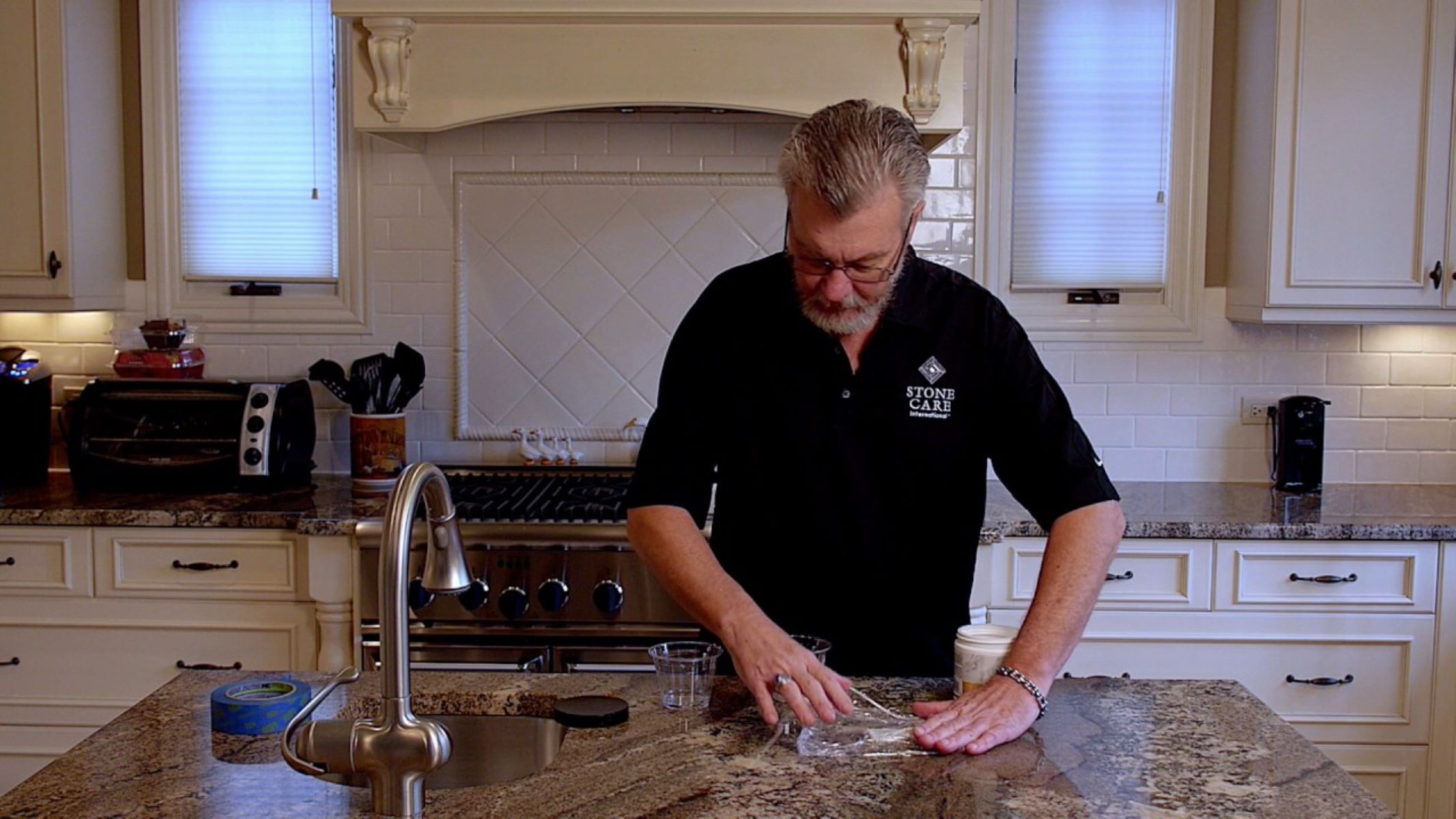
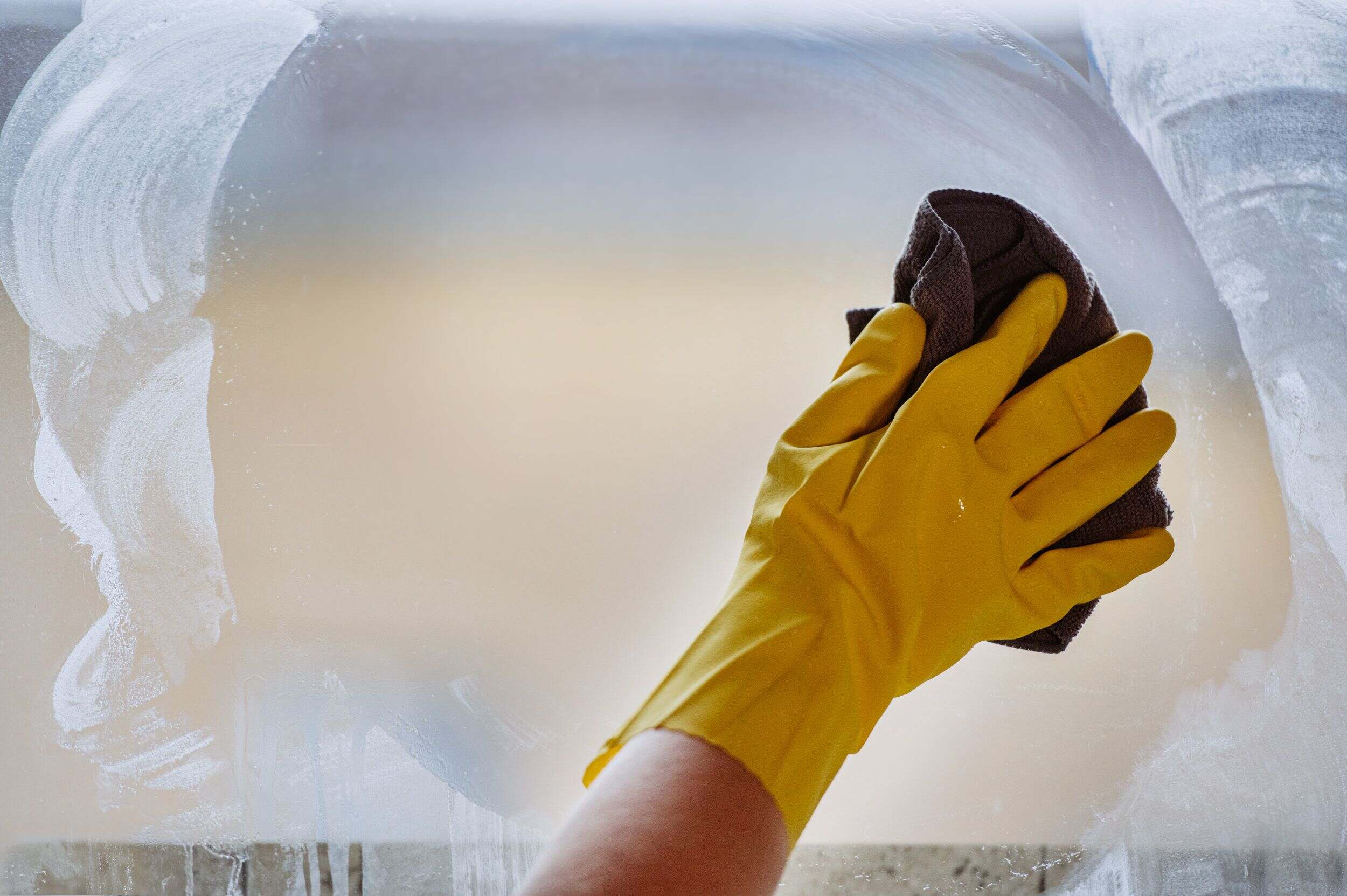
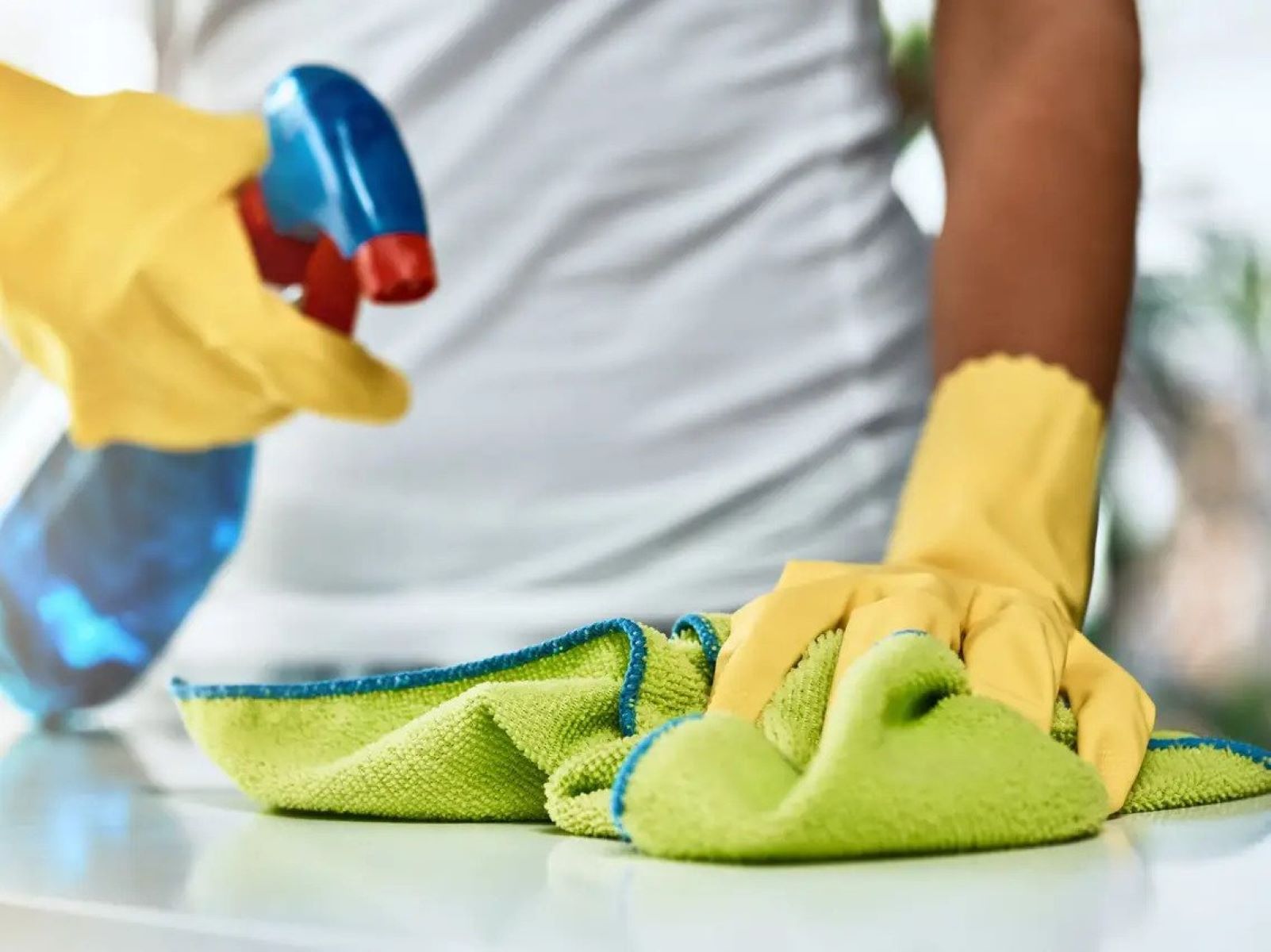
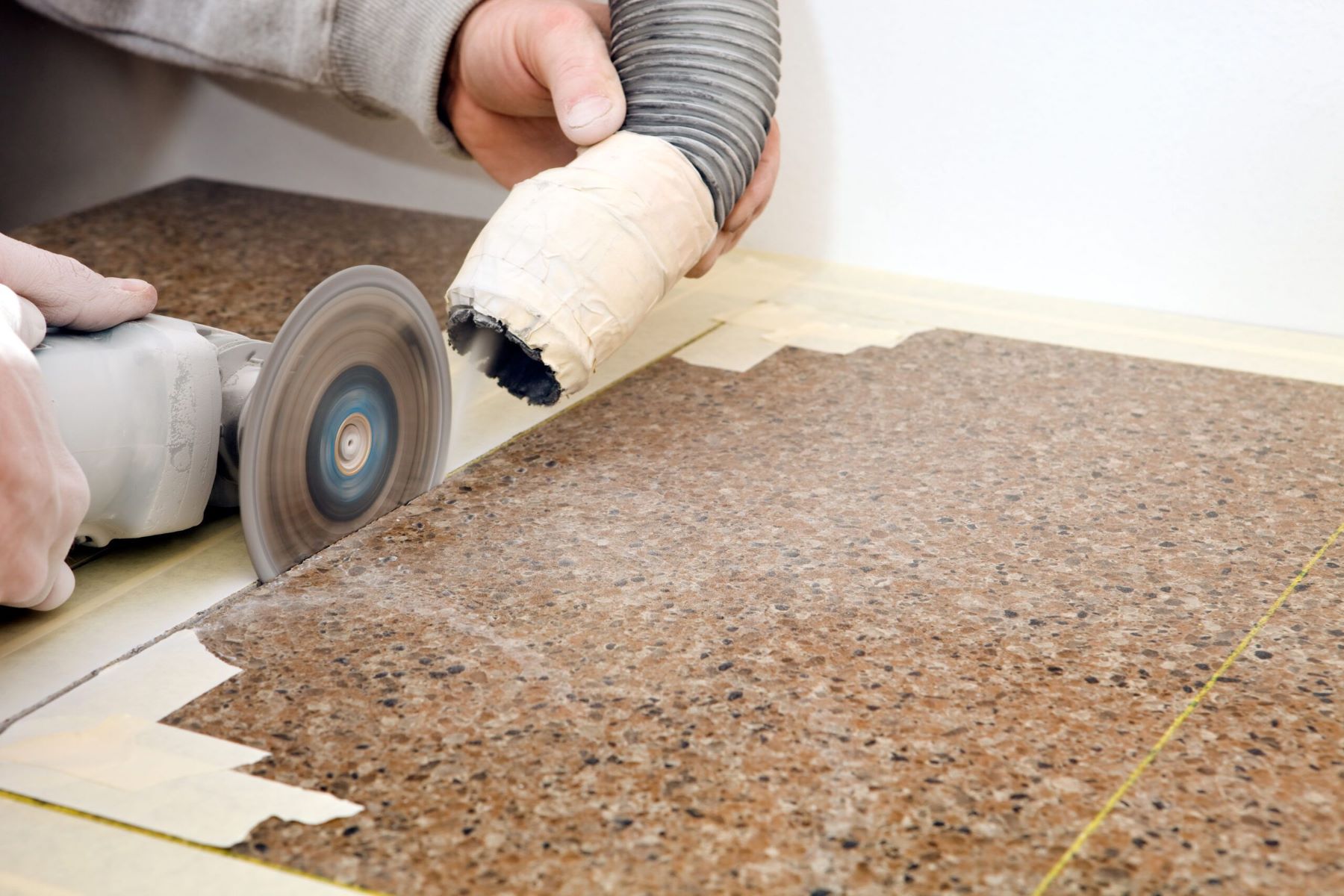
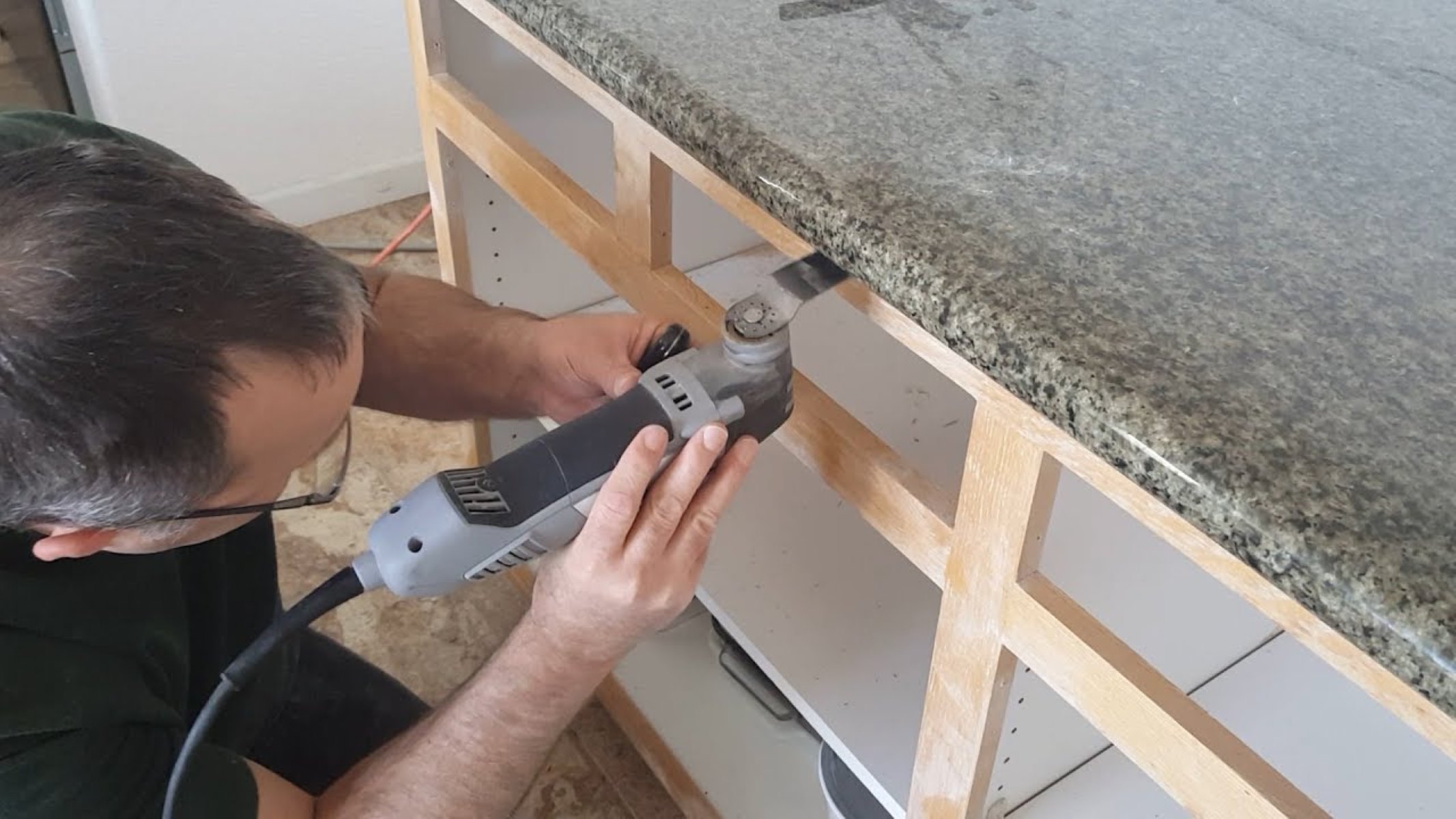
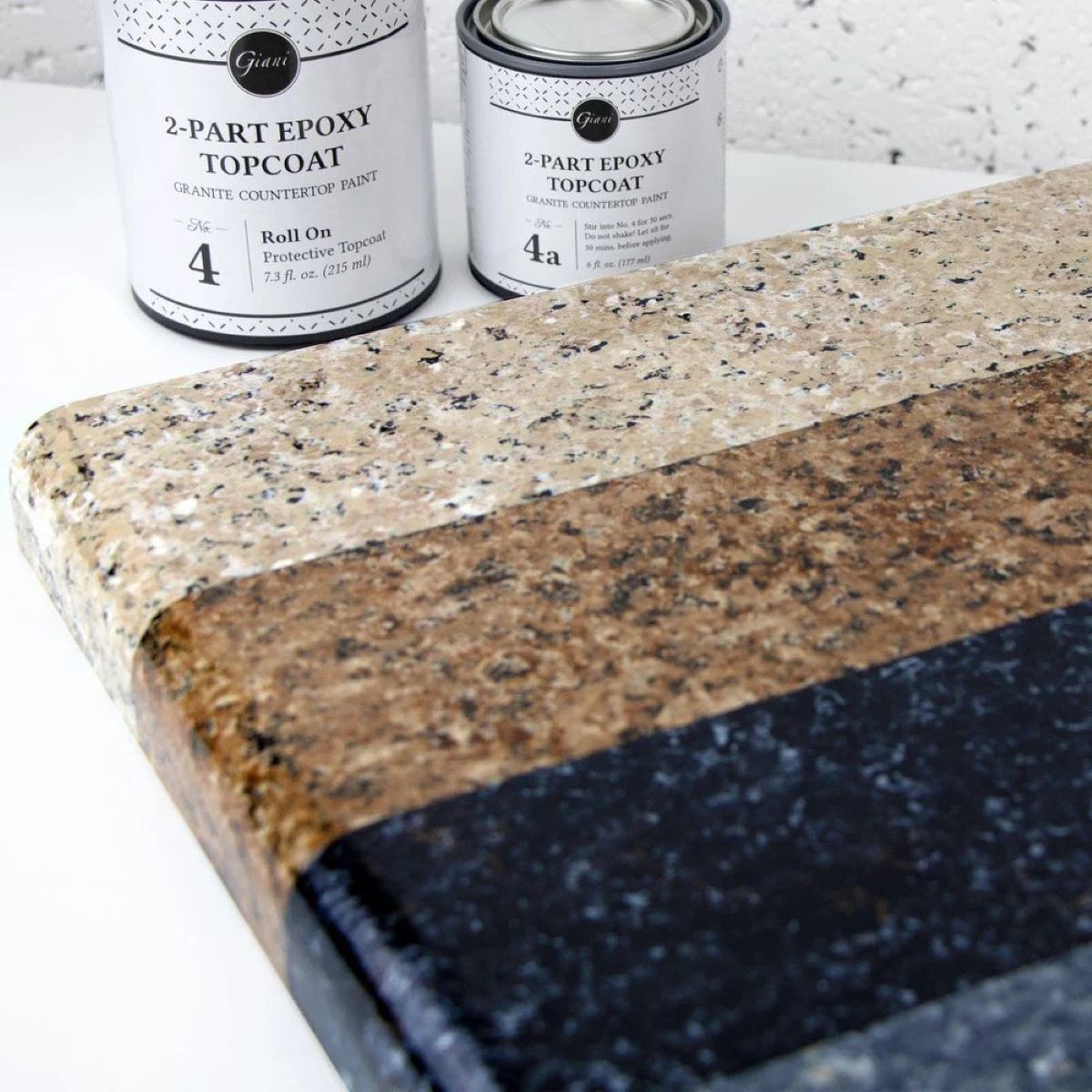
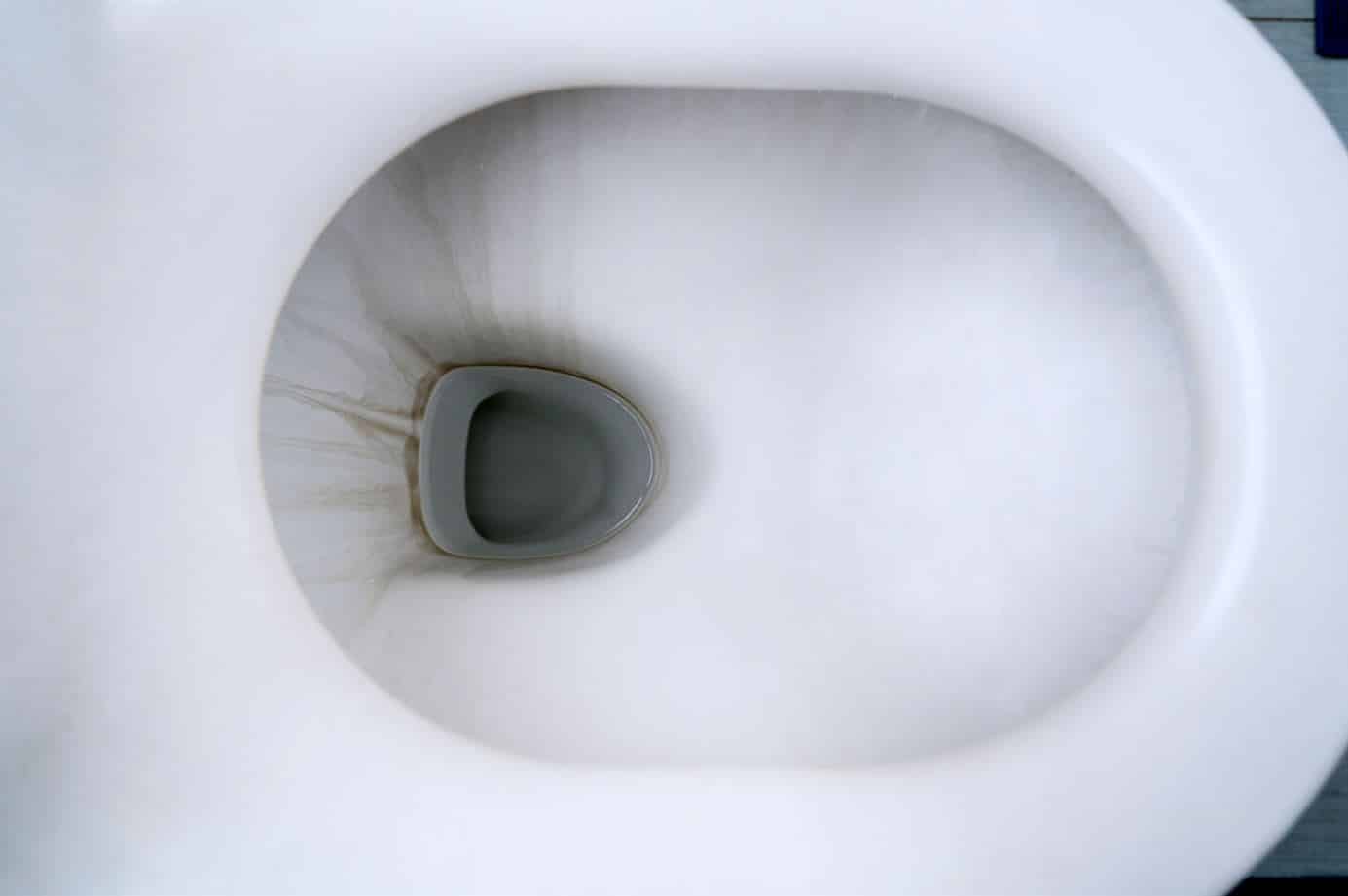
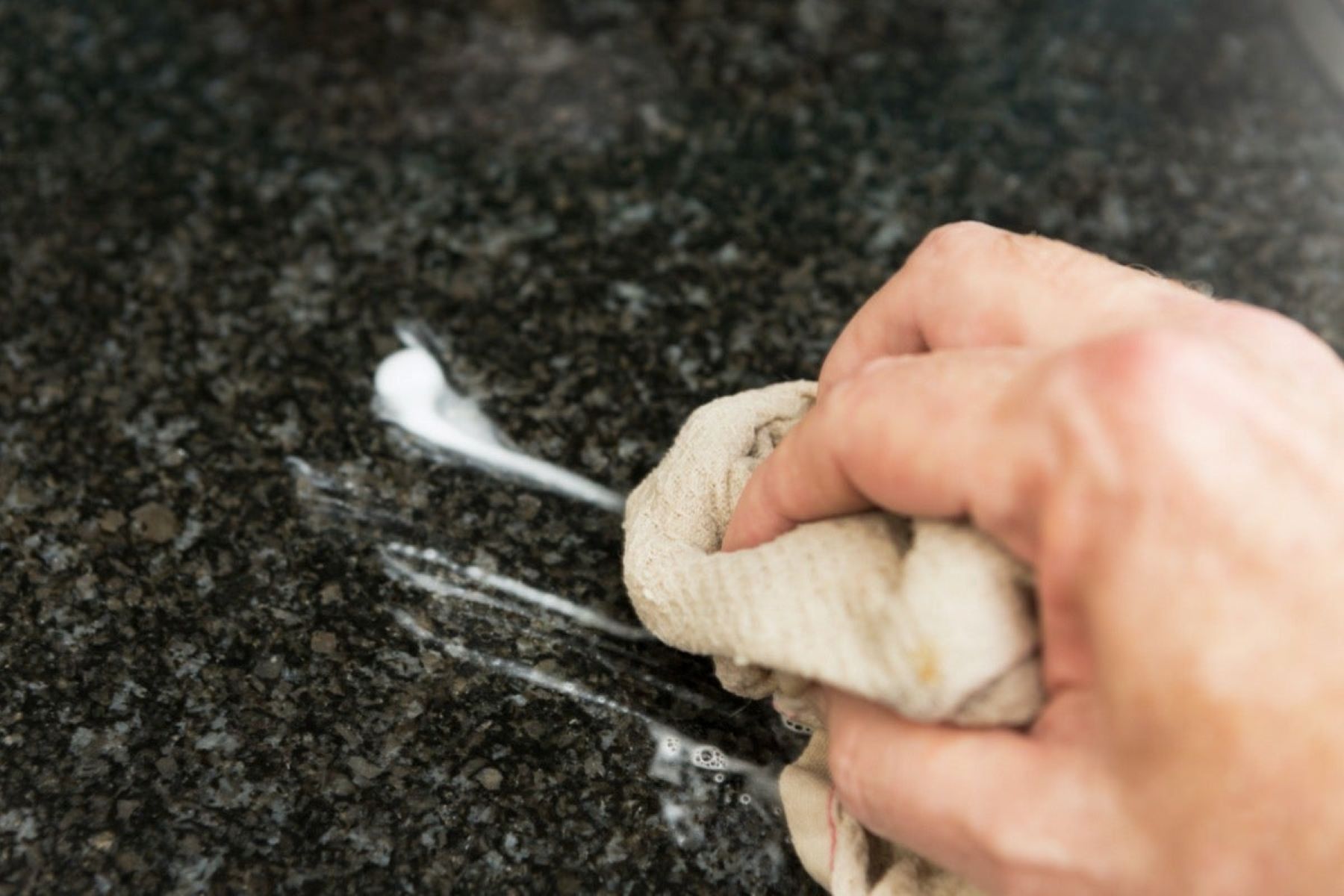
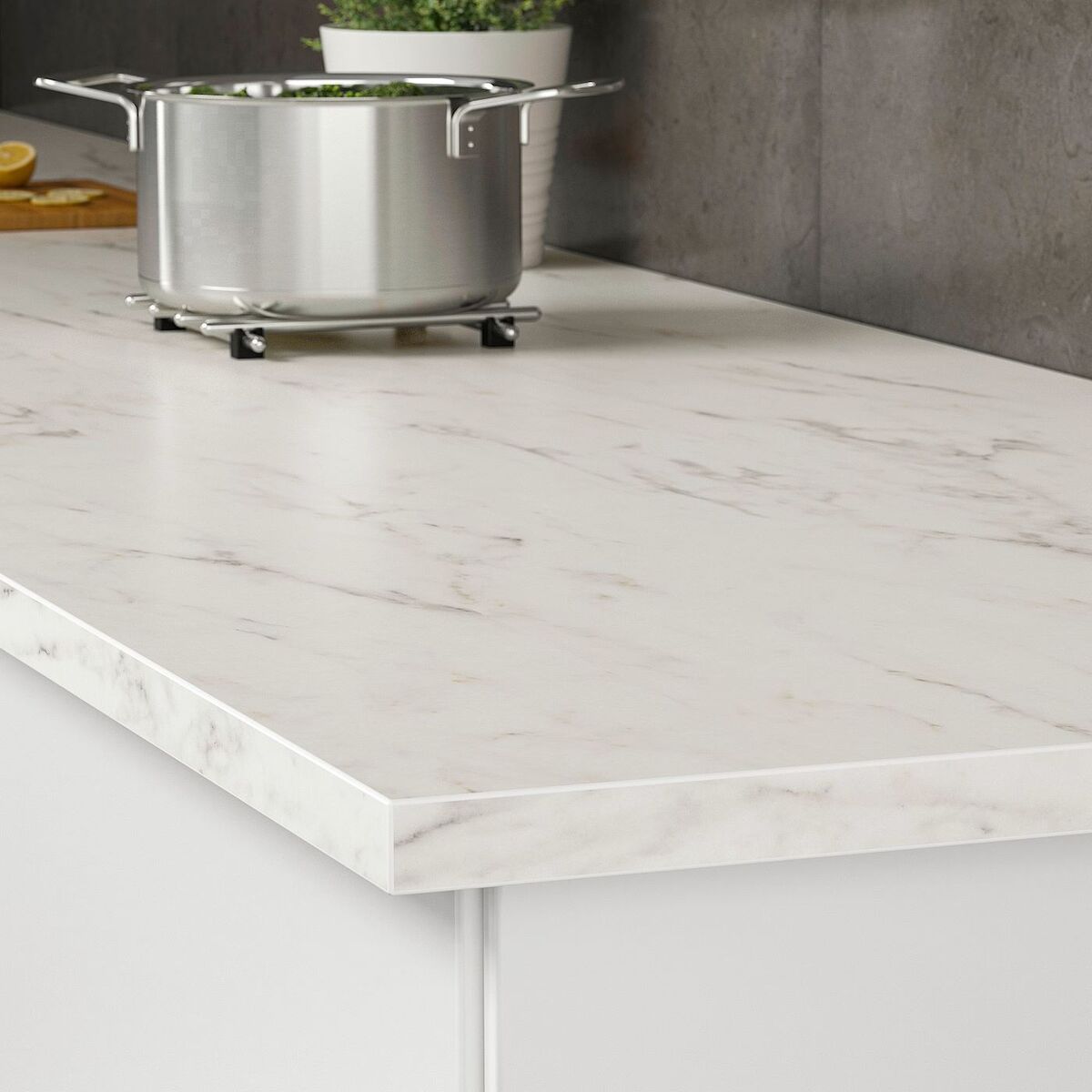
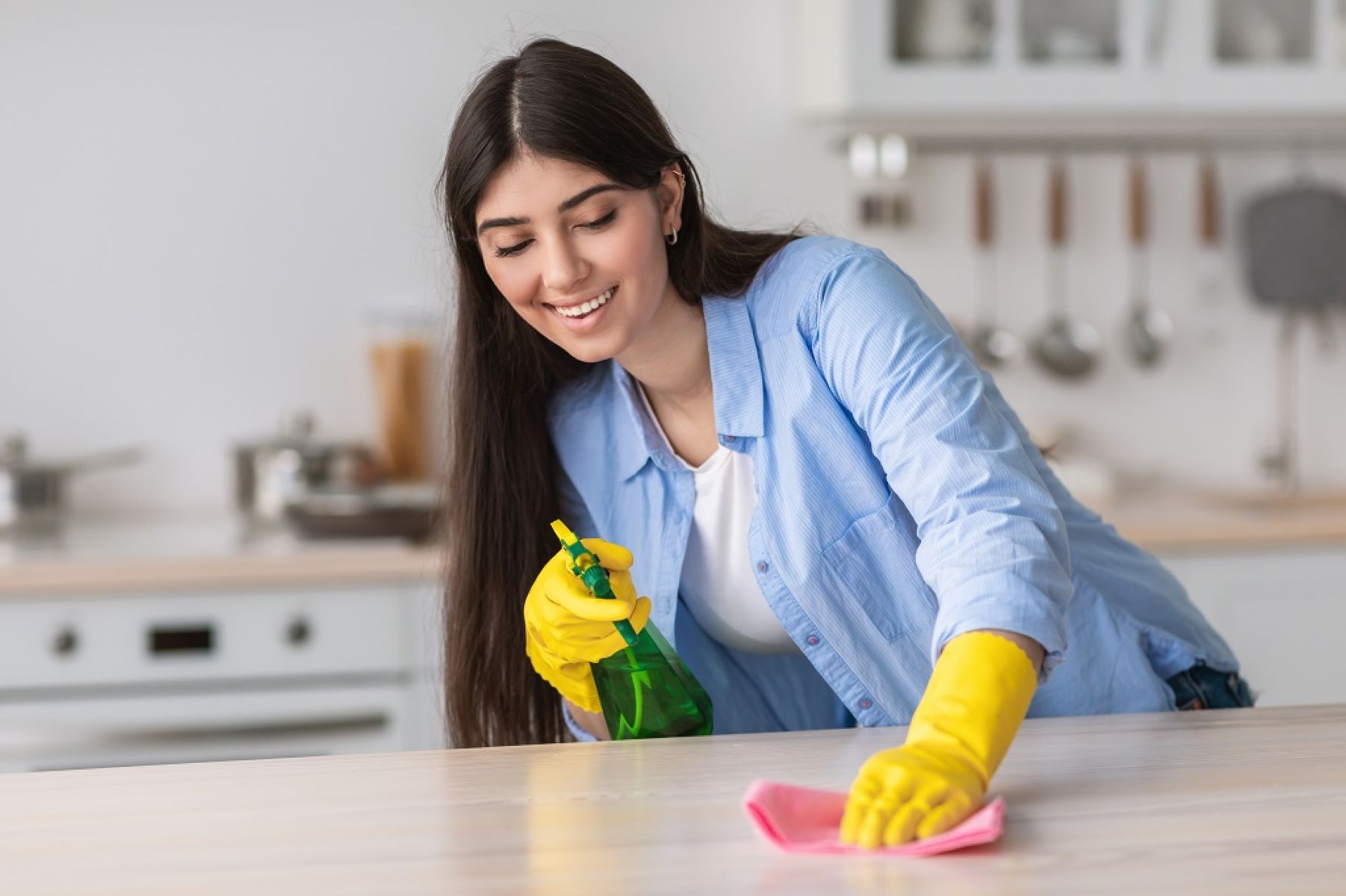
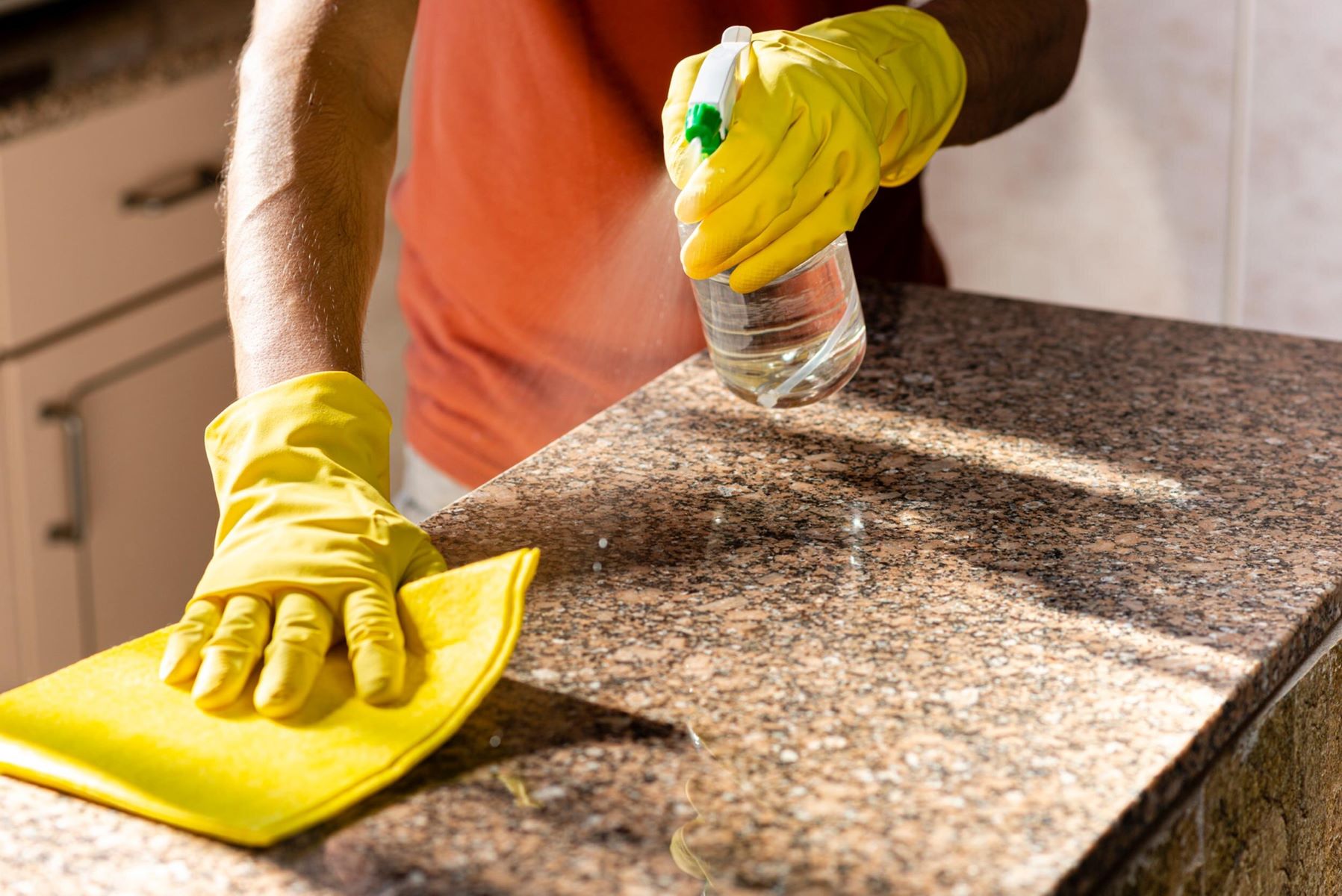
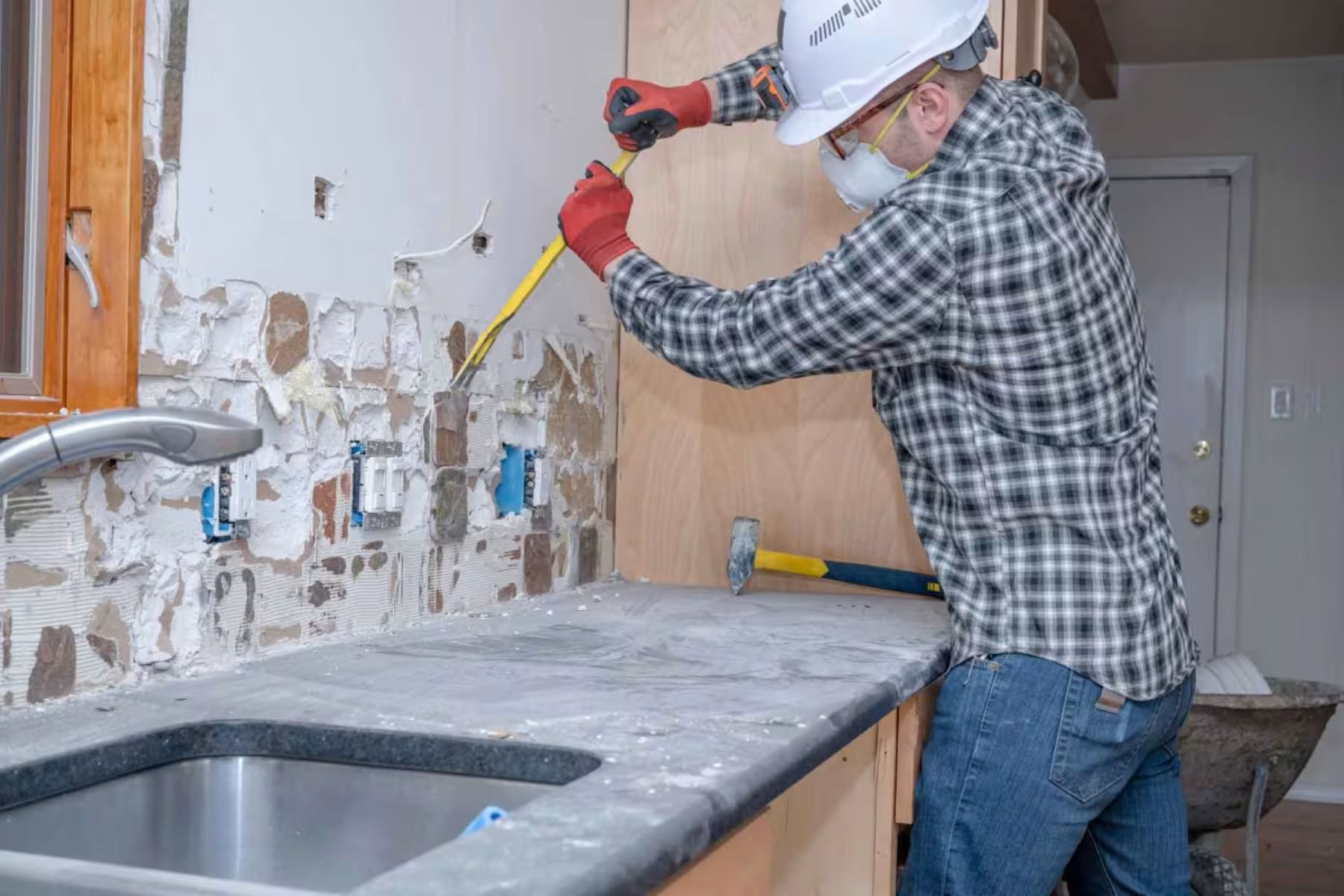
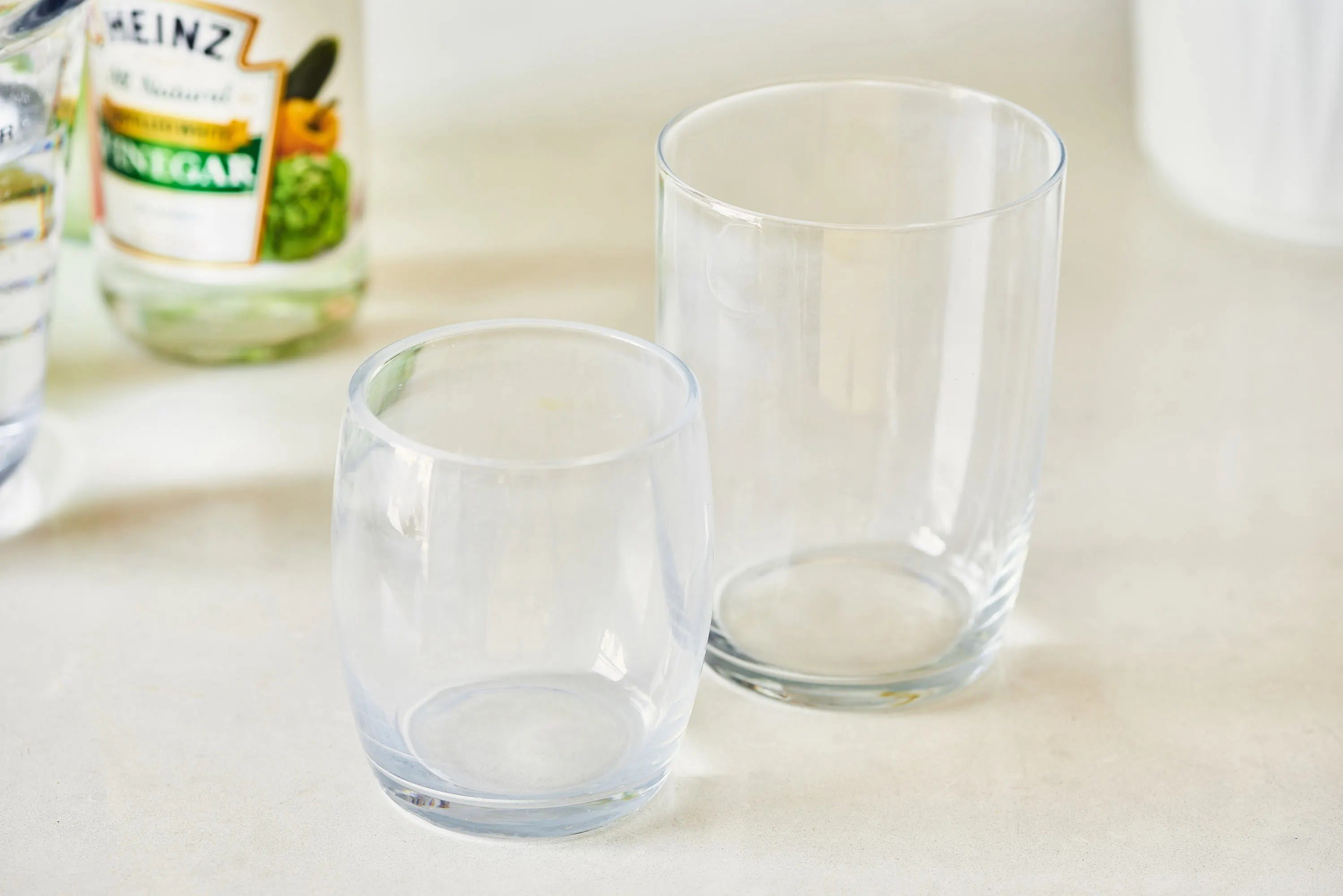
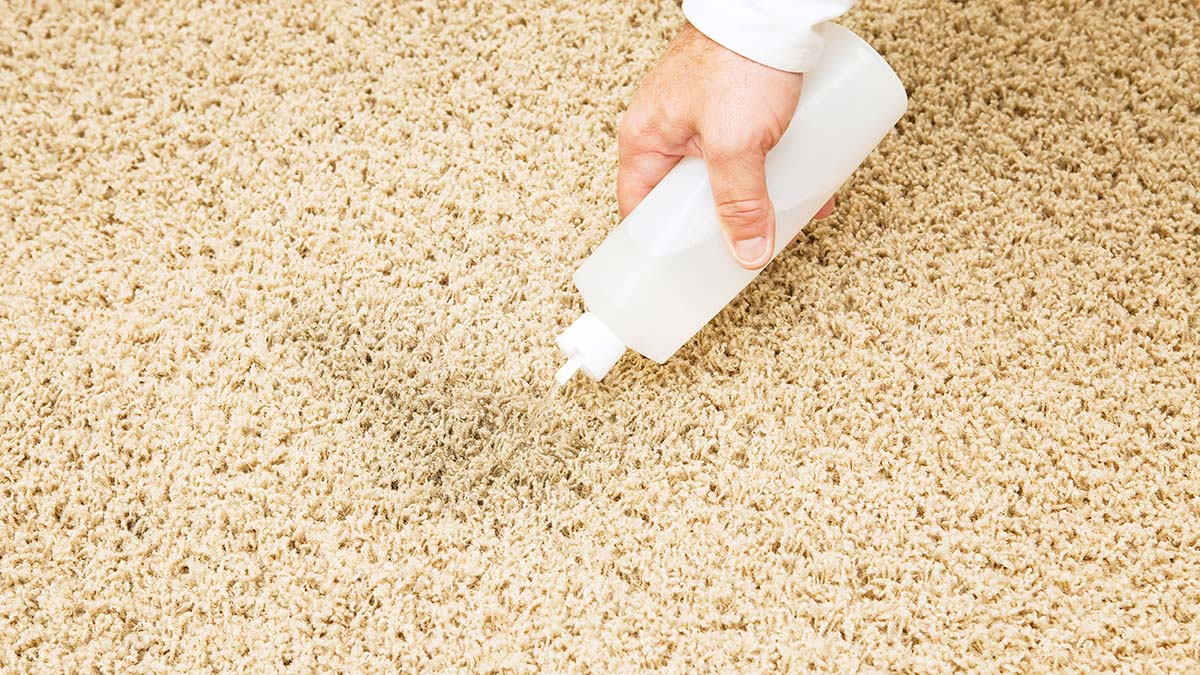

0 thoughts on “How Do You Remove Water Stains From Granite Countertops”